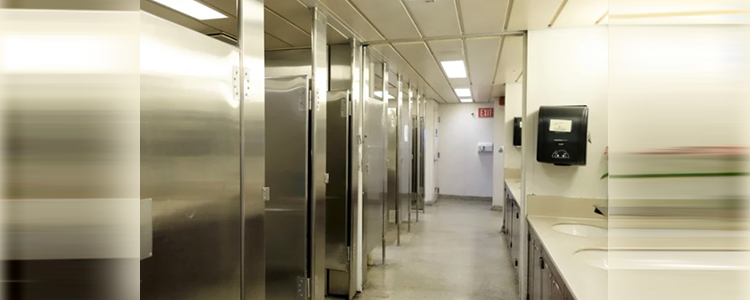By Stan Matthews
County Communications Program Manager
In a special meeting Tuesday, May 4,the San Juan County Council gave the Public Works department conditional authorization to proceed with plans to convert the current San Juan Island transfer station to a “drop box” facility to enable it to continue to operate after June 30. The Council asked to be consulted again if the cost of conversion was to be higher than $50,000 or the facility could not be modified to handle trash “packer” trucks from the Town and franchise hauler San Juan Sanitation deposited directly in the drop box.
The County has been attempting to replace or upgrade the San Juan Island transfer station since 2002. It latest effort ground to a halt in April when the Town abruptly announced it had decided not to sell the leased property, including the current solid waste tipping floor, to the County.
The County had planned to erect a cover over the tipping floor as one of the capital improvements required to retain its permit to operate; however the County Council and administration are reluctant to spend the estimated $300,000 to construct the cover, as the term of the lease ends in 2014.
Public Works Director Jon Shannon explained that converting the San Juan Island station to a drop box facility will mean trash must be deposited directly into a container, rather than dumped on the tipping floor and pushed in. He said that most self haul customers will notice little difference, but accommodations will need to be made to allow “packer” trucks to operate. Those trucks now push compacted trash onto the floor as the loads would spill over the long-haul trailers as they are now configured.
Shannon said that he believes the utility will be able to create a low-cost, temporary means of keeping the transfer station’s doors open before the operating permit expires, but he emphasized the accommodation would be temporary. He said the root cause of the utility’s current financial and regulatory problems is the long term lack of funding for capital improvements. He said postponed maintenance and equipment replacement, and a patchwork of short-term, make-do solutions has left the utility vulnerable.
“We might be able to make it to 2014, I don’t know, but you’re not going to make it indefinitely, it is absolutely unsustainable, because at some point a key piece of the infra-structure will fail and you’ll have no way to pay for it.”
He added that revenue from tipping fees can not support the operation of three separate transfer stations.
The Council briefly discussed the need to put either a bond issue or a levy lid-lift proposal on the ballot to help finance the utility’s capital needs and agreed a detailed proposal should to be developed before voters are asked to pay more. Chair Richard Fralick said the discussion on solid waste utility funding and operations will continue at future meetings
**If you are reading theOrcasonian for free, thank your fellow islanders. If you would like to support theOrcasonian CLICK HERE to set your modestly-priced, voluntary subscription. Otherwise, no worries; we’re happy to share with you.**







